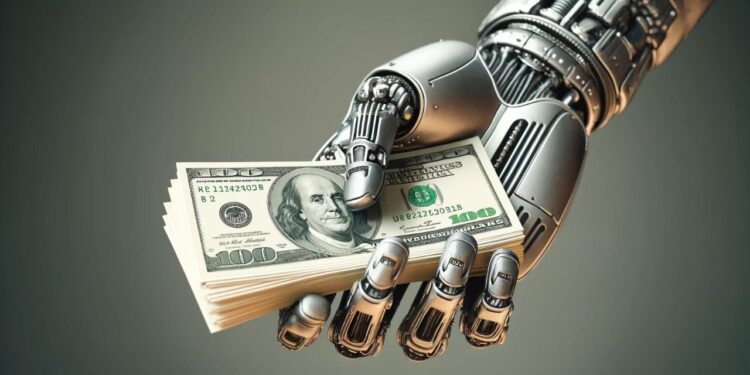The working-class push to equitably tax the rich might also soon include a call to tax the robots.
Artificial intelligence (AI) promises remarkable boosts to workplace productivity, but it also poses risks to economic and social structures if proper guardrails are not put in place.
Concern surrounding the technology’s increasing impact has led experts like University of Massachusetts Associate Professor of Department of Public Policy and Public Affairs Michael J. Ahn to write commentary exploring potential safeguards.
In Ahn’s recent piece, published by The Brookings Institution, the concept of a “robot tax” to counteract the fast advancements of AI and robotics is explored.
“A robot tax, targeting companies that deploy AI and robotics that are capable of autonomous decision-making, fulfills two pivotal roles,” Ahn believes. “Initially, it provides economic support for individuals affected by automation, bolstering unemployment benefits and ensuring the market’s demand for goods and services remains steady. Additionally, it prompts businesses to weigh the advantages of human labor against the efficiencies of automation, especially in cases where the benefits of either option are closely matched.”
Many experts believe that AI’s total impact on the workforce will be equivalent to a new industrial revolution, where jobs not only will be created, but also eliminated.
Thats where the concept of a robot tax emerges as a proposal for ensuring a fair transition to a more automated world.
Ahn writes that a robot tax could be effectively implemented if laws grant robots and AI systems certain sets of legal rights — similar to those already given to other legal entities like corporations.
This kind of policy would allow AI systems and advanced robots to be subject to taxation (as separate entities) and it would enable them to be held legally accountable for actions (to sue and be sued).
This kind of legal recognition is not about granting robots the same rights as humans, rather, it’s about positioning the current legal and fiscal systems to brace for an increasingly automated reality.
Other key considerations raised by Ahn that would be essential for an effective robot tax include determining which industries and functions of AI to tax, deciding whether manufacturers or employers bear the fiscal responsibility, and promoting international cooperation between nations to prevent any competitive disadvantages.
Notably, Ahn writes that the introduction of a robot tax would also help to redistribute economic gains, support displaced workers (displaced due to automation), and fund essential public services — ensuring that the benefits of AI are shared across society.
A robot tax is a concept being raised in response to the rapid development of AI and robotic systems. It’s a concept that will likely be explored to a greater extent in the future, in the same vein as other potential AI policies like the concept of guaranteed income, or mandating that AI-generated content be labeled online and in advertisements.
As technologies become more developed, innovative policies will be important for safeguarding the workforce.



 Dr. Gleb Tsipursky – The Office Whisperer
Dr. Gleb Tsipursky – The Office Whisperer Nirit Cohen – WorkFutures
Nirit Cohen – WorkFutures Angela Howard – Culture Expert
Angela Howard – Culture Expert Drew Jones – Design & Innovation
Drew Jones – Design & Innovation Jonathan Price – CRE & Flex Expert
Jonathan Price – CRE & Flex Expert











